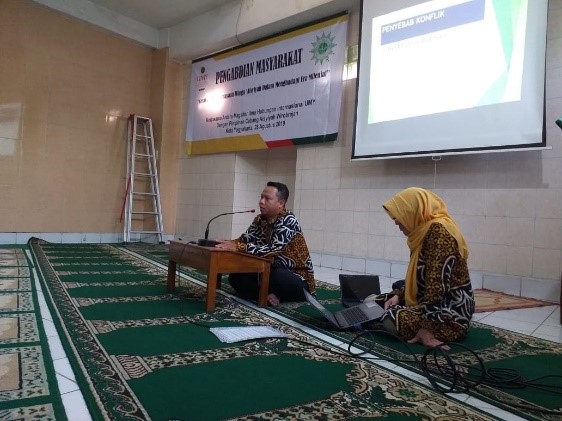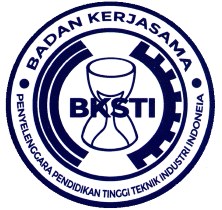DISKURSUS MANAJEMEN KONFLIK BERBASIS ORGANISASI KEMASYARAKATANPERKOTAAN DI YOGYAKARTA
DOI:
https://doi.org/10.12928/spekta.v1i1.2640Keywords:
Religious Conflicts, Yogyakarta, Social Constructivism Theory, Conflict ManagementAbstract
This article discusses the results of advocacy on conflict management based on urban community organizations, especially the organization 'Aisyiyah, Wirobrajan Branch, Yogyakarta City. This is important considering that the trend of conflict between religious organizations in Yogyakarta City shows serious concerns. This is because in a survey conducted in 2016, the conflict index for the City of Yogyakarta had the highest score, namely 1.4 compared to the other four districts. Thus, this dedication becomes important so that it is expected to reduce the level of conflict within the organization as an effort to self-retraint (restraint) in the Social Constructivism Theory initiated by Alexander Wendt. In this study, the authors conducted a survey which was divided into two periods, namely pre-test before mentoring and post-test after mentoring. As a result, an interesting trend emerged, namely an increase in understanding of governance before and after the material. The ability to internalize conflict management is influenced by several factors, one of which is urban locations that tend to have open discourses and attitudes in societyReferences
https://doi.org/10.5840/thought1945204158
Fischer, Dietrich. (2011). Johan Galtung: Pioneer of Peace Research. New York, Springer.
Maksum, A. dan Surwandono. (2016) Analisis Akselerasi Konflik Organisasi Keagamaan Islam Di Yogyakarta. Prosiding SENASPRO Malang.
Jung, E. (2014). Islamic organizations and electoral politics in Indonesia: The case of Muhammadiyah, Southeast Asia Research, 22(1): 73-86 5.
Masatoshi, Kisaichi. (2015). Popular Movements and Democratization in the Islamic World, New York, Routledge.
Phillips, C. and Valbjørn, M. (2018). What is in a Name?’: The Role of (Different) Identities in the Multiple Proxy Wars in Syria. Small Wars and Insurgencies, 29 (3): 414433.
Pruitt, L. J. (2015). Gendering the study of children and youth in peacebuilding. Peacebuilding, 3(2), 157–170. https://doi.org/10.1080/21647259.2015.1052630
Robinson, S. (2015). Islam, Responsibility and Business in the Thought of Fethullah
Gülen. Journal of Business Ethics. https://doi.org/10.1007/s10551-014-2101-3
Surwandono, Ali Maksum, S. J. (2019). An Early Warning Information System for Social and Religious Conflict in Yogyakarta, Indonesia. International Journal of Interdisciplinary Social and Community Studies, 14(1), 37–47.
https://doi.org/https://doi.org/10.18848/2324-7576/CGP.

Downloads
Published
How to Cite
Issue
Section
License
Copyright (c) 2020 Ali Maksum, Nur Azizah

This work is licensed under a Creative Commons Attribution-ShareAlike 4.0 International License.
Authors who publish with SPEKTA (Jurnal Pengabdian Kepada Masyarakat: Teknologi dan Aplikasi) agree to the following terms:
- Authors retain copyright and grant the journal the right of first publication with the work simultaneously licensed under a Creative Commons Attribution License (CC BY-SA 4.0) that allows others to share the work with an acknowledgment of the work's authorship and initial publication in this journal.
- Authors are able to enter into separate, additional contractual arrangements for the non-exclusive distribution of the journal's published version of the work (e.g., post it to an institutional repository or publish it in a book), with an acknowledgment of its initial publication in this journal.
- Authors are permitted and encouraged to post their work online (e.g., in institutional repositories or on their website) prior to and during the submission process, as it can lead to productive exchanges, as well as earlier and greater citation of published work.

This work is licensed under a Creative Commons Attribution-ShareAlike 4.0 International License.












